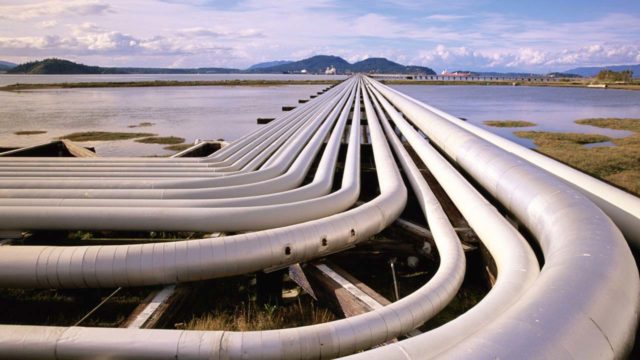Nigeria flares an excess of 700 million standard cubic feet (SCF) of gas per day from 178 flare sites, which translates to Nigeria losing approximately $10 billion of revenue yearly, equating to $2,00 per MMBtu, due to its inability to capture and commercialise flared gas in the country.

If flared gas is properly harnessed, Nigeria can produce 600,000 MT of LPG per year and generate 2.5 GW of power from new and existing Independent Power Plants to power the economy.
Considering that electricity generation from the grid is largely thermal-based, which means that about 80 per cent of the power plants in Nigeria are fuelled by gas, reducing flaring and increasing gas utilisation is key to addressing energy deficit.
There is currently a dire lack of adequate infrastructure to transport gas to power producers coupled with insufficient domestic gas price incentives. Gas pipeline vandalism exists as a barrier to gas-to-power projects.
From January 2020 to January 2021, NNPC documents showed that the company spent a total of N59.1 billion on the repair and management of pipelines within a year.
Although figures from various sources on how much products Nigeria lose from the breakages vary, it is estimated that between 200,000 barrels per day and 400,000 bpd is being lost to the menace today.
Although associated gas incurs no added costs of exploration, the difficulties and high costs of transportation to a domestic market, which is not sufficiently large or concentrated to absorb the costs, has always been a major incentive for upstream operators in Nigeria to adopt the “easy route” of gas flaring
Lack of critical gas capturing and transportation infrastructure
GAS infrastructure is critical to harnessing Nigeria’s gas reserves; although there is insufficient gas capturing and transportation infrastructure, the key infrastructure deficit is primarily on the nation’s gas transmission backbone.
Thus, gas projects have been experiencing a relatively slow pace of growth. Again, a major transformation of the Nigerian gas sector is hinged on the Nigeria Gas Transportation Network Code (NGTNC), which was launched by the Federal Government last year as the uniform protocol for users of the Gas Transportation Network (GTN) in order to provide open and competitive access to gas transportation infrastructure and development in Nigeria.
The introduction of the NGTNC provided windows of opportunity to various industry players, investors and potential gas off-takers to engage in different aspects of the gas value chain.
Upon the successful development and launch of the code, the Department of Petroleum Resources (DPR) coordinated the implementation process of the network code (NC) through extensive alignment of all players in the industry, development of operationalisation procedures for the code, adaptation of critical technology enablement for the administration of the code.
The concerted enabling actions of the Department led the second key achievement in the gas sector, which was the NC GO-LIVE on the 10th August 2020 and launch of the Network Code Electronic Licensing and Administrative System (NCELAS) by the Minister of State for Petroleum, Timipre Sylva.
The NC GO-Live declared by the minister opened up the opportunity for all gas requirements across Nigeria and the African sub-region to access gas from all the hydrocarbon resource bearing assets in a safe and efficient manner.
Speaking on the significance of the network code, Sylva said it would help to grow gas infrastructure, expand gas utilisation, curb gas flaring, and provide codes to standardise the gas value chain in line with global best practices.
The minister said the NGTNC was part of the key reforms instituted by the President Muhammadu Buhari administration to expand domestic gas-to-power, gas-to-industry, gas-to-manufacturing and mitigate the challenge associated with gas flaring in the country.
He noted that the gas codes would go a long way in deepening economic development, improve gas supply, boost liquefied petroleum gas supply, and attract more investment opportunities in the nation’s gas value chain.
Understanding the Network Code
PRIOR to the issuance of the Nigerian Gas Transportation Network Code (the “Network Code”), transportation of gas through pipelines was governed by the Petroleum Act, currently compiled as Cap. P10 Laws of the Federation of Nigeria (“LFN”) 2004; Oil Pipelines Act, currently compiled as Cap. O7 LFN 2004; the Land Use Act, currently compiled as Cap. L5 LFN 2004; the Oil and Gas Pipelines Regulations and the Environmental Guidelines and Standards for the Petroleum Industry in Nigeria (“EGASPIN”).
The contractual regime for the transportation of gas was governed by gas transportation agreements which made provisions for delivery of accumulated gas at delivery points via dedicated gas transportation and distribution infrastructure.
However, the Network Code was launched in August 2020. The Network Code sets the terms and conditions for the operation and use of the gas transportation system.
The system is comprised of the following pipelines: Escravos-Lagos Pipeline System, Oben-Ajaokuta Pipeline System, Obiafu-Obrikom-Oben Pipeline System, and all owned by the Nigerian Gas Company (“NGC”) and used to provide services for the conveyance of gas in accordance with the terms of the Network Code as well as all other pipeline system that may be in may be in existence or constructed in future and used to transport gas in line with the Network Code (the “System”).
Support InfoStride News' Credible Journalism: Only credible journalism can guarantee a fair, accountable and transparent society, including democracy and government. It involves a lot of efforts and money. We need your support. Click here to Donate
